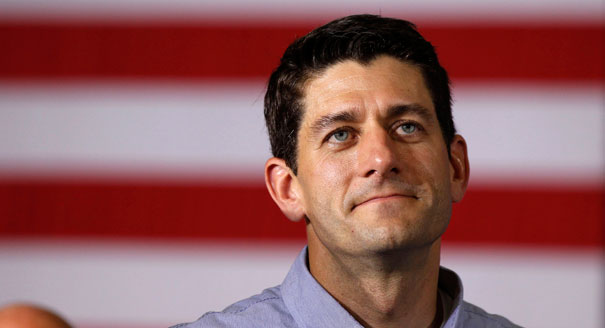Officials: Chuck Hagel Was a 'Gift From God' for the Israeli USO

Admiral Ze'ev Almog, or Aluf Almog in Hebrew, speaks in a deep baritone, no-BS, command-authority voice that must have intimidated enemies and political rivals inside and outside Israel's command structure over the past decades. He exudes confidence, authority, and a compelling patriotism for the State of Israel for which he fought in so many wars. The nearly 78-year old former Commander-in-Chief of the Israeli Navy and former head of the Israel Shipyards fought in the Suez Crisis, the Six-Day War, the War of Attrition, the Yom Kippur War, the 1982 Lebanon War, and through the long span of what is called the South Lebanon Conflict.
 Almog was commander of the battle-tested Naval Commando Unit, Flotilla 13, performing more than 80 combat operations ranging from penetrating Egypt's Port Said and raids on Adabiya coastal forts to sinking Egyptian torpedo boats. He is credited with dramatic transformation of Israel's sea-based military platforms and operations, and is one of those legendary leaders from whom many Israelis still have the benefit of learning about high stakes moments in the nation's history. Ze'ev Almog has also been a friend of and corresponding with former US Senator Chuck Hagel for decades.
Almog was commander of the battle-tested Naval Commando Unit, Flotilla 13, performing more than 80 combat operations ranging from penetrating Egypt's Port Said and raids on Adabiya coastal forts to sinking Egyptian torpedo boats. He is credited with dramatic transformation of Israel's sea-based military platforms and operations, and is one of those legendary leaders from whom many Israelis still have the benefit of learning about high stakes moments in the nation's history. Ze'ev Almog has also been a friend of and corresponding with former US Senator Chuck Hagel for decades.
I tracked down the one-time naval commander-in-chief one late night by cell phone. First, I got his grandson, to whom I recounted why I wanted to speak to his grandfather. The young man responded by saying his grandfather would insist on me retelling everything again "exactly." Why was I calling? What was the purpose? What did I intend to do with my interview? Almog is cautious but forceful - and a really busy man. I called four times in one night - finally securing my interview at what was about 1 a.m. for him in Israel.
And then we talked about Chuck Hagel.
The reason I tracked down this acclaimed military leader is that he had also long been involved with the USO, which supports the well-being of US military personnel stationed around the world, and is chartered by the US government but funded entirely in the private sector. Many Americans who weren't soldiers or relatives of soldiers became aware of the USO because of the extraordinary profile that celebrity Bob Hope gave to the organization by performing for US troops during World War II, the Korean War, and more. Almog was selected in 1992 by the USO World Board of Governors to serve as the first USO President in Israel -- and he had been deeply involved with and supportive of USO activities inside Israel in the years before his assumption of the organization's presidency.
I also tracked down Gilla Gerzon, the longtime former director of the USO's operation in Haifa, Israel. Why? An article recently appeared charging Chuck Hagel, who from 1987-1990 was the president & CEO of the USO, with an obsessive anti-Jewish compulsion to close the Haifa operation. The article, "The Saga of Hagel and Haifa," written by senior writer Adam Kredo for the Washington Free Beacon, quotes some who accuse Hagel of having an anti-Semitic fervor that drove him to want to close this facility.
But after digging into this a bit -- both on the American side and Israel side of the debate -- there is ample evidence that this charge against Hagel is at best unsubstantiated by evidence and at face value completely untrue.
When Hagel took over the USO in 1987, the organization was flat on its back and near bankruptcy - and by the fall of 1989, it had more than $1.8 million in the bank, signifying a major reversal of fortunes. Hagel was compelled to shutter a number of under-performing or anachronistic USO platforms that no longer aligned with the habits and travel patterns of US military personnel. And thus when he came into office, he reviewed all of the USO facilities - including the one in Haifa - and decided to keep the Haifa operation open, expanding it in fact, while shuttering ten others in the Middle East region. Hagel's USO performance and challenges are well outlined in this segment of Charlyne Berens's book Chuck Hagel: Moving Forward.
The Free Beacon article states that the USO's then-president Chuck Hagel "led the controversial charge to shutter the port [the Haifo USO operation] during his tenure with the organization." While on one hand, Kredo acknowledges that the USO reported to him that it has no evidence or records to suggest than an effort, or "charge," was made to close Haifa U.S.O. during Hagel's term, he quotes some who recall Hagel on a Haifa-closing crusade, making comments that at least one person felt bordered on anti-Semitism. In particular, the author cites Jewish Institute for National Security Affairs senior staff member Marsha Halteman who states that in a meeting with various concerned individuals and groups, Hagel said "Let the Jews pay for it."
Halteman recounts that she confronted Hagel and told him that she "found his comments to be anti-Semitic." And the piece continues to generically cite others who believe that Hagel was hostile to Jews in general during this period.
This is all remarkable if true, so I sought out those who actually helped run and had direct supervisory authority over and proximity to the Haifa USO operation.
The collective view of Israeli voices directly involved with the USO is that the depiction of Hagel could not be more distant from their experiences and recollections.
Former Israeli Navy Commander in Chief Ze-ev Almog said that Chuck Hagel "was completely positive towards us." He said that in "my experience with the USO, I have never heard a single word that he acted to close the USO in Israel. It happened later."
Indeed, the Haifa USO port was closed in 2002 -- well after Chuck Hagel's tenure, during which Almog and others I interviewed said that Hagel and the USO Board kept Haifa open.
He said that before he was nominated as the first Israeli president of USO, Almog did not know Hagel - and then they became closely acquainted after - meeting twice during trips Hagel made to Israel. Almog continued that they have corresponded over the years, exchanging views, sharing drafts of speeches given, and the like.
Almog said that his experience with Hagel has always been "completely positive" and that he has never seen Hagel "act against Israel." He continued that while he became president of the Israel chapter of the USO after Hagel had left his position, he never heard, observed, or read anything about an effort by Hagel to close the Haifa operation - with which Almog became intimately and directly involved. He said that from his vantage point, these assertions in the recent article by Adam Kredo are groundless.
I was then interested in whether this obvious hero in Israel's military establishment had any reservations at all about Hagel's larger views about Israel:
Clemons: In your interactions with Chuck Hagel did you ever experience any negativity about Israel, or its people or institutions?
Almog: Not at all. I must be fair. I heard about, and even read some articles about, his negative attitude towards Israel and I never met such an occurrence.
Look. One time one of my best friends from San Diego - a very good friend of mine - attracted my attention that Hagel was against signing a press request to release Jews from Russia. My friend is not Jewish. He said to me, "Look. See - your friend - see how he behaves!" He was the only Senator among the 100 that opposed the signature for that publication.
I sent it to Chuck, and he sent me back his letter to President Clinton, and what President Clinton answered to him. Those two letters were sent to me showing that he thought it was rather better to do it that way than doing it through the press - and he fully supported this claim to release the Jews, but to go through the President and not to the press. Although I understand he was the only Senator to take that position.
What Almog shared by way of an interesting anecdote is that Hagel in this case avoided jumping on a media bandwagon and used his role as a United States senator to make a difference in a policy matter, forgoing personal vanity or media puffery. It's unclear how many of the other 99 US senators sent private, compelling letters to Bill Clinton on this matter, but it's easy to presume that far more signed their names passively to a media vehicle on the issue -- rather than more proactively engaging in a serious exchange with the president of the United States on the matter.
 Gilla Gerzon, fondly referred to by many US soldiers and Marines as the "mother of the 6th Fleet", was director of the USO Mission in the port of Haifa for nearly 20 years and served in that capacity when Hagel was the organization's CEO. Gerzon is the first Israeli citizen to receive the U.S. Navy Commendation Medal. I tracked her down to ask her to share her recollections of Hagel and the debate surrounding whether the Haifa USO mission would remain open or close.
Gilla Gerzon, fondly referred to by many US soldiers and Marines as the "mother of the 6th Fleet", was director of the USO Mission in the port of Haifa for nearly 20 years and served in that capacity when Hagel was the organization's CEO. Gerzon is the first Israeli citizen to receive the U.S. Navy Commendation Medal. I tracked her down to ask her to share her recollections of Hagel and the debate surrounding whether the Haifa USO mission would remain open or close.
Clemons: I am calling to ask your recollections of Chuck Hagel's tenure as president and CEO of the USO and the discussions in the late 1980s about closing the Haifa facility you directed. Could you share your thoughts?The actual USO Director in Haifa during the late 1980s review of her facility says that Chuck Hagel's visit "was an absolute gift of God" and goes on to praise him effusively for his support. This seems to be vital material missing from the Washington Free Beacon article charging Hagel with having been on a crusade to close the facility.
Gerzon: First of all, I must say that I admire him. I have great respect for him.
Clemons: When were you at the Haifa USO mission? [Subsequent reseach shows she was the founding director of the USO Haifa mission and served from its opening in December 1984 through its closing in September 2002].
Gerzon: I was the USO Director in Haifa -- So many years, almost 20 years. I was director during the time when Chuck Hagel was President of the USO.
Clemons: Do you remember Chuck Hagel trying to close the Haifa operation?
Gerzon: No. Look, I do not remember that he did anything like that. The issue is....OK, listen. He came to visit Israel with his wife. He came to see the operation, and that was the first time I met him, and he was very moved I think by what we were doing because he saw that for us this was a very, very important mission.
The issue is you need to understand the importance of young people who are going overseas. They are -- I have, always been very patriotic to the USO mission and very patriotic toward the military, to the servicemen and women. Here [in Israel] service is mandatory, but in America they volunteer to do it. They don't have an easy life.
Imagine you are 18 or 19, and you are overseas, you don't know the culture, the people, the language, and you are coming off the ship. We felt very special towards the US Marines and Navy. In the Gulf War, we had the patriots from the Army. So, just imagine you are 19 years old, you are away from home, you have a birthday and someone gives you a birthday party. Maybe "Happy Birthday David"....and just 18 years old or 19. A small thing makes a big difference.
For me, it was an absolute gift of God and for our volunteers when Chuck Hagel came to Israel. I think he felt that, the importance of those overseas here who were helping American men and women.
From this first moment I felt like he was a great supporter. He had the wisdom of his heart. You know every leader can be a leader, but you have to have wisdom in your heart to feel what is important. I think he was very wonderful for us by making the best decision to leave the doors open, and then he was a great supporter of us. He truly admired the USO Mission here and our work.
On the US side, I spoke with Edward "Ned" Powell, former president & CEO of USO world headquarters who led the organization when the Haifa mission was closed. He said that he had no idea whether Chuck Hagel had sought to close the mission earlier or not. He said he had never been given any word that he had worked to do that.
But Powell said that what is often not understood -- no matter the circumstanced about Haifa at that time -- is that the USO is a completely private organization, supported by private dollars though it was congressionally chartered as an organization. Powell said that the world changes, that the location of American servicemen and women in the world has shifted from certain theaters of conflict to new ones. He said that it made no sense in 2002, after the debacle of 9/11 and the US invasion of Iraq and Afghanistan, to preference USO facilities in Haifa when there was a massive troop deployment on the other side of the Middle East and in South Asia.
Powell said "I closed Paris. Believe me, I would have loved to keep visiting the USO Mission in Paris, but it would have been wrong. There are no US service members there. I closed England and others as well, but I'm not anti-British."
Powell said that his and Hagel's job as CEO of the USO is to make sure that USO platforms are giving the most value for the private dollars that support them -- that the operations are "necessary and performing at a high standard." He said that when Hagel came in as USO president, the organization was in "severe financial duress." Powell said Hagel had to make tough calls. In fact, while deciding to keep the Haifo USO facility open, Hagel closed 10 other operations in the region.
While Hagel took the USO from the edge of bankruptcy to restoring its financial legs, Powell expanded the USO's operating budget from less than $40 million a year to nearly $250 million in 2008.
Current USO President and CEO Sloan Gibson wrote this to me about Chuck Hagel's tenure at the organization:
Senator Hagel has been a steadfast supporter of our troops and their families for more than three decades, well beyond his own military service. He personally brought that strong commitment to the USO as CEO and President of the USO from 1987 to 1990.The bottom line: Chuck Hagel kept the facility open and expanded it when he was restructuring and shifting priorities inside the USO to keep it alive. If Hagel had had a deep anti-Israel bias, others would have seen it and reported it -- and the near bankruptcy of the organization as a whole would have given him more than enough cover to close the place if he felt that was needed, or what he personally desired.
Senator Hagel arrived at the USO during a fiscally tough time for the organization, and we have him to thank for leading the way back to financial health so that the USO could continue to provide its signature programs and services for America's troops and their families around the world. He kept the USO moving forward - just like the US military we serve.
A few years ago, I visited Hamburg, Germany as the guest of the Friedrich Naumann Foundation and its International Political Dialogue Director Claus Gramckow. As we drove by a building in the now very wealthy city, he lamented the closing years before of what he called "America House," a US-government supported facility that hosted events, a library, and resource center for Germans interested in knowing more about America.
Gramckow said that we have to acknowledge that the world changes, that today that kind of center needs to shift to Kabul and Baghdad. But still, some will lament and feel like a lesser priority when institutions like this close. The same logic applies to America's USO operations -- loved or not -- in the parts of the world they are located.




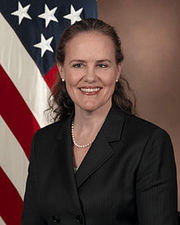






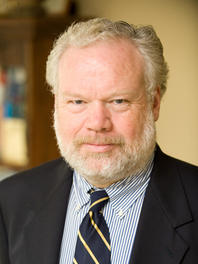






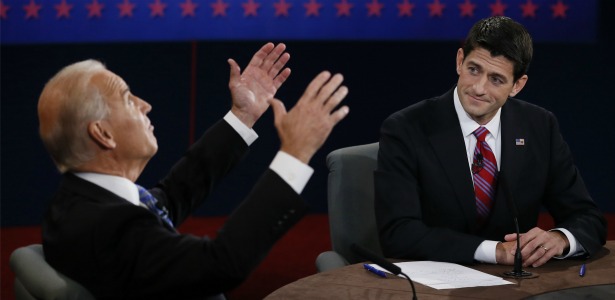


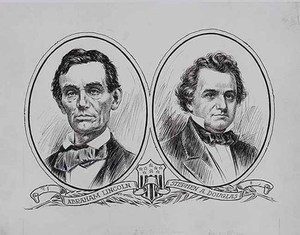 I want the debates to matter -- and thus think that all Americans who are pondering the fate of the nation should spend time watching and wrestling with the proposals they hear from our future or given-one-more-chance leader. I will be live-blogging the debates for both
I want the debates to matter -- and thus think that all Americans who are pondering the fate of the nation should spend time watching and wrestling with the proposals they hear from our future or given-one-more-chance leader. I will be live-blogging the debates for both  A new poll issued by the
A new poll issued by the  In every category, Obama beat Romney in Arab-American voter perceptions of being able to deal with key issues of the day. Obama's double digit gap was least in assessment of their respective ability to manage the economy. Surprisingly, Obama's lead on economic capability was exactly the same as the Obama-Romney gap on managing the Israeli-Palestinian conflict.
In every category, Obama beat Romney in Arab-American voter perceptions of being able to deal with key issues of the day. Obama's double digit gap was least in assessment of their respective ability to manage the economy. Surprisingly, Obama's lead on economic capability was exactly the same as the Obama-Romney gap on managing the Israeli-Palestinian conflict.

